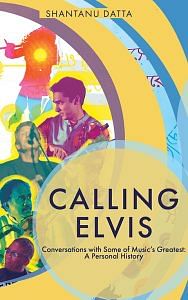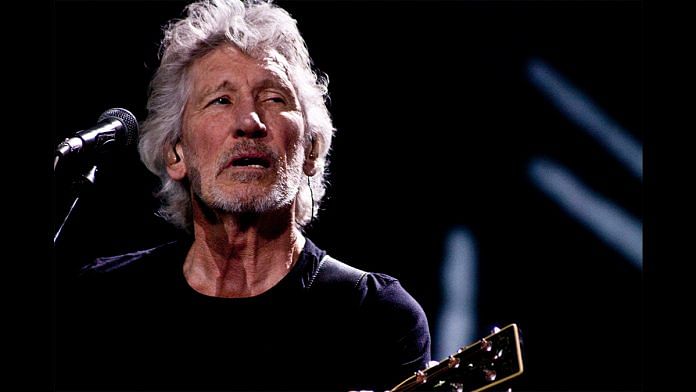Roger Waters met us in London. It was just like any other London afternoon: cloudy, rainy. With me were Alan Mendonca of The Times of India and Venkat Vardhan of DNA Networks, the promoter of the Roger Waters concerts in India. Venkat had taken us there, keen that TOI and The New Indian Express, write a curtain-raiser to the April 2002 performances. Before being led into his suite, a man we assumed was from Roger Waters’ management ticked us off. ‘From India? Fifteen minutes max. There are many others waiting.’
My heart sank. So, TOI and NIE had to sit-in together. The conversation went on for over an hour. That man from Roger Waters management had come in thrice, I remember, to try and get his boss to stop. He didn’t succeed.
Roger talked that day, opening up about the ‘happiest days of our lives’, Pink Floyd’s Syd Barrett years, and the eternal search for the answer to that one question that has always been haunting him.
‘On the evidence that we have now do we feel that the human race is capable of evolving to a point where we recognise what it is in life that gives us joy, and what is in life that gives us pain? Is the human race evolving towards a place where it is likely to choose more joy and less pain?’
So, here I was face-to-face with the cerebral section of the ensemble known as Pink Floyd whose songs we would sing—no shout out—while in the school hostel shower before PT on cold winter mornings. We embraced the sheer defiance of We don’t need no education even though we did not then, I am quite sure, grasp the real essence of Another Brick in The Wall.
Also read: Pink Floyd’s Roger Waters recites Aamir Aziz’s anti-CAA poem, calls law ‘fascist and racist’
Comfortable at last
India at last?
Waters: I have never been to India, even on holiday. I never did the Maharishi thing. Though I have a daughter who has spent a lot of time in India, she loves the country. But I am really looking forward to it.1
Pink Floyd is huge in India. We’ve grown up singing, We don’t need no education.
Really? Oh yes, I can see you’ve brought along your record. It’s pretty old, more than twenty years, maybe?
Yes.
This record, The Wall, and The Dark Side of the Moon, and to a lesser extent, Wish You Were Here, successive generations seem to discover it when they hit puberty and start searching around for ways at disentanglement during their journey to becoming adults… and the stuff that they find in here seems to have a resonance. I did a tour of the United States in 2000 and another one in 1999, and I suspect the average age of the audience was about twenty-five, a pretty young audience.
Your decision to return to performing and touring was the result of an impromptu concert with Don Henley (Eagles) in 1992. How did that happen?
It was one concert and it was for charity. He was trying to raise money to buy and protect the literary tradition of a place in the northeast called Walden Woods where Henry David Thoreau did a lot of his writing. So he asked me if I could play a few songs at an evening in LA. He also asked John Fogerty (Credence Clearwater Revival) and Neil Young. So John, Neil, me and Don did a set of songs each. I didn’t have any show, no quadrophonic sound, just Don’s band and me on the guitar. I remember playing Mother and I can remember feeling this extraordinary wave of love from the audience. There I was singing this song which they all knew, and they all seemed so happy. And in that moment it rekindled the performer in me; I realised it was something I needed to get back to again.
Do you see yourself now as having come full circle from the time when you were so disgusted with the touring circus that you even spat at an unruly fan trying to climb up the stage?
Very much so. That incident happened in 1977. I remember it well as that was at the heart of the spark that started me writing this piece (The Wall). Yes, I have come a long way since then.
Is Roger Waters at peace now?
I am a lot more at peace now than I was twenty-five years ago. And I think I am beginning to operate from a more adult place than I have ever done in my whole life. You know, the abandoned child component of my personality has remained pretty powerful through most of my adult life. It’s only through some of the recent events in my life that I have come to understand it, and started consciously to deal with it. I am fifty-eight years old and I guess what I am saying is that it’s never too late to grow up.
What is so compelling in the world today that is forcing you to write again?
A lot of my writing is rooted in an empathy I feel for other human beings, based upon my own feelings of despair and alienation I feel from the things of my life—most famously the loss of my father. It’s funny you ask me that, for I ran into Nick Mason on holiday a few weeks ago and we arranged to have dinner.
Floyd-mate with whom you use to share a deep friendship?
Yes, we were very close and we got estranged when Floyd split up.
Isn’t he godfather to your son?
Yes, my elder son. So we were having dinner, Nick and I, and we were talking. In the light of everything that’s going on now in the world, I find myself still trying to find answers to the unanswerable question. I was just focusing on this sitting in the cab last night, and the question that came up in a flash was: On the evidence that we have now, do we feel that the human race is capable of evolving to a point where we recognise what it is in life that gives us joy and what it is in life that gives us pain? Is the human race evolving towards a place where it is likely to choose more joy and less pain? And I find that to be a very difficult question to answer. However, the one thing that I am optimistic about is the fact that because of the explosion of information technology, I feel we increasingly have a better chance to at least pose the questions for ourselves.
Also read: ‘The Wall’ cemented Pink Floyd’s fame – but destroyed the band
Do you write first and then put a tune to it?
No, it’s usually together.
When you look back, which were the best Pink Floyd shows in terms of stagecraft?
I think The Wall was pretty special. It was very well crafted. In all, it was a good show, well put together.
Last question, this one I have to ask. How is your relationship with David Gilmour now?
David and I haven’t spoken since 1985.
But the title of Floyd’s latest compilation, Echoes, was yours, isn’t it? Apparently, Gilmour suggested Sum of the Parts, which you didn’t like.
Yes, I must say that it was pretty poor.
That’s all, I guess. Thank you very much for your time.
Thank you, it was a pleasure talking to you.
What was meant to be a strict fifteen-minute tete-a-tete with two blokes from India, went on for an hour. Alan asked his questions, I mine. For we worked out an arrangement then and there. We were to write each other’s pieces using Roger’s responses to our respective questions. In the end, Roger signed my Wall album. He even clicked pictures with us.
Once we were back in Bangalore, we were kind of celebs ourselves. Those ‘lucky b*******’ who got to meet Roger Waters’, people said. AIR FM interviewed us about our interview, published about a week before the April 13, 2002 concert. If Pink Floyd were the prophets of psychedelia, one of the prophets stood before us, 40,000 of us, that Saturday night. Arms spread wide, bass guitar slanting at an angle, Roger Waters sang: So, ya thought ya might like to go to the show?
 Excerpted from Calling Elvis: Conversations with Some of Music’s Greatest: A Personal History by Shantanu Datta with permission from Speaking Tiger Books.
Excerpted from Calling Elvis: Conversations with Some of Music’s Greatest: A Personal History by Shantanu Datta with permission from Speaking Tiger Books.




I usually don’t comment on these articles, but I did so because of the ignorant comment above. True art and inspiration is beyond any demographic barriers and time and is rare to come by – so you take it as it comes. Most of the so called Indian music legends have hardly composed anything that matches the depth of Dark Side of the Moon by Pink Floyd. They keep sticking to the cliche Bollywood factory without showing any sparks of genuine creativity. Even many indie bands have way more originality than these overrated Indian musicians. And this is no way a “colonial hangover” lol. It is about finding good art and relishing it.
Btw, kudos to the journalists for being able to have such a discussion with Roger Waters. I’m sure he spent more time with you because he liked your company.
Yes indeed ,, i mean we are only what 70 years of a old a country but sadly its suffice to say the media is still overwhelmed of the western people and the other intelligentsia !..
Maybe the media ought to be drawing a fence to restrict its many ways of using and influencing the rest of the world with its engrossing interviews of celebrity bigwigs .
Better we wake up as a country first ! ..and then do the other non essential comparisons
Its always hilarious to me how subservient we are to fampous people from western countries….Truly, the colonial hangover is still there in english writing journalists of india………This kind of awe and respect should be shown for our indian achievers and legends ….The fundamental mistake that many in indian media make is that they develop false sense of familiarity with indian celebs, to the point they start taking them for granted, as the saying goes “Familiarity breeds contempt”…. i think indian media should always remember that they will remain as far as possible in life from indian celebrities till their death …..